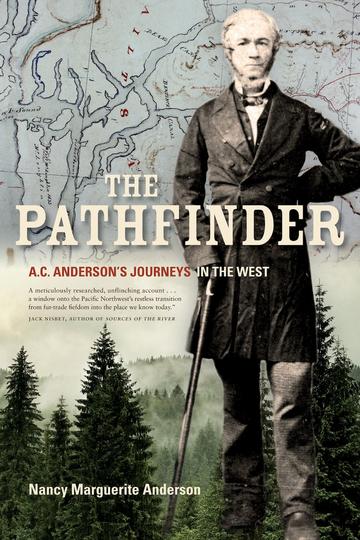About BC Books Online
BC Books Online was created for anyone interested in BC-published books, and with librarians especially in mind. We'd like to make it easy for library staff to learn about books from BC publishers - both new releases and backlist titles - so you can inform your patrons and keep your collections up to date.
Our site features print books and ebooks - both new releases and backlist titles - all of which are available to order through regular trade channels. Browse our subject categories to find books of interest or create and export lists by category to cross-reference with your library's current collection.
A quick tip: When reviewing the "Browse by Category" listings, please note that these are based on standardized BISAC Subject Codes supplied by the books' publishers. You will find additional selections, grouped by theme or region, in our "BC Reading Lists."
Fifteen years before the 1858 Fraser River gold rush, a Hudson’s Bay Company clerk named Alexander Caulfield Anderson threaded his way through mountain passes and down rapids-filled rivers in search of a safe all-British route through the mountains that separated the HBC fort at Kamloops from Fort Langley on the Pacific coast. Eventually, Anderson discovered four routes, succeeding where Alexander Mackenzie and Simon Fraser before him had failed. Without his explorations, historian Derek Pethick once wrote, British Columbia may never have come into being or become a part of the Dominion of Canada.
For Anderson, the cross-country expeditions he undertook were welcome antidotes to a fur-trade life that wasn’t quite what he’d expected it to be. By the time he joined, in 1831, it was in fact a tightly controlled business that was very different from the adventurous trade that had inspired him. But though he may not have had his dream life, his spirit of adventure kept him going. As explorer, map-maker, artist and writer, he created a wealth of information to guide those of his time and far beyond, and his work—first in the fur trade, then in the communities in which he lived, and finally as Fisheries Inspector and Indian Reserve Commissioner for British Columbia—was always aimed at improving the future of the people he lived among.
- Age:
- 15
- Grade:
- 10



